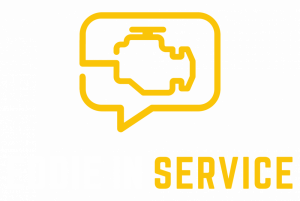23 December,2023
Navigating the Used Car Market: Tips for a Smart Purchase

Buying a used car can be a practical and cost-effective alternative to purchasing a brand-new vehicle. However, navigating the used car market requires careful consideration and research to ensure a smart and satisfactory purchase. In this article, we will explore essential tips to guide you through the process of buying a used car, helping you make an informed decision that aligns with your needs and budget.
Set a Realistic Budget:
Before delving into the used car market, establish a realistic budget that not only covers the purchase price but also accounts for potential additional costs such as taxes, registration fees, and insurance. Having a clear budget in mind will narrow down your options and prevent you from overspending.
Research the Model and Make:
Take the time to research different makes and models that align with your preferences and requirements. Consider factors such as fuel efficiency, maintenance costs, and reliability. Online resources, reviews, and consumer reports can provide valuable insights into the performance and longevity of specific vehicles.
Check Vehicle History Reports:
Accessing a comprehensive vehicle history report is crucial when considering a used car. Services like Carfax or AutoCheck can provide information about previous accidents, title issues, odometer discrepancies, and maintenance records. A clean history report is a positive indicator of the car’s overall condition and reliability.
Inspect the Car Thoroughly:
Perform a detailed physical inspection of the used car, either by yourself or with the assistance of a trusted mechanic. Look for signs of wear and tear, rust, or any potential mechanical issues. Pay attention to the condition of tires, brakes, and fluids. A thorough inspection will help you identify hidden problems and negotiate a fair price based on the car’s actual condition.
Take it for a Test Drive:
A test drive is an essential step in assessing a used car’s performance and comfort. Pay attention to how the car handles, brakes, and accelerates. Listen for unusual noises, and evaluate the responsiveness of the steering. A test drive provides firsthand experience and allows you to detect any issues that may not be apparent through visual inspection alone.
Negotiate the Price:
Once you’re satisfied with the condition of the used car, be prepared to negotiate the price. Research the fair market value of the specific make and model, taking into account factors such as mileage and condition. Be open to compromise but remain firm on a price that reflects the car’s actual worth.
Consider a Pre-Purchase Inspection:
If possible, arrange for a pre-purchase inspection by a qualified mechanic. This additional step may reveal any potential issues that were not identified during your initial inspection. While it may incur an extra cost, a professional evaluation can provide peace of mind and potentially save you from future repair expenses.
Conclusion:
Navigating the used car market requires a combination of research, diligence, and informed decision-making. By setting a realistic budget, conducting thorough research, checking vehicle history reports, inspecting the car, taking it for a test drive, negotiating the price, and considering a pre-purchase inspection, you can increase the likelihood of making a smart and satisfying used car purchase. Remember that patience and attention to detail are key in finding a reliable and cost-effective vehicle that meets your needs.

